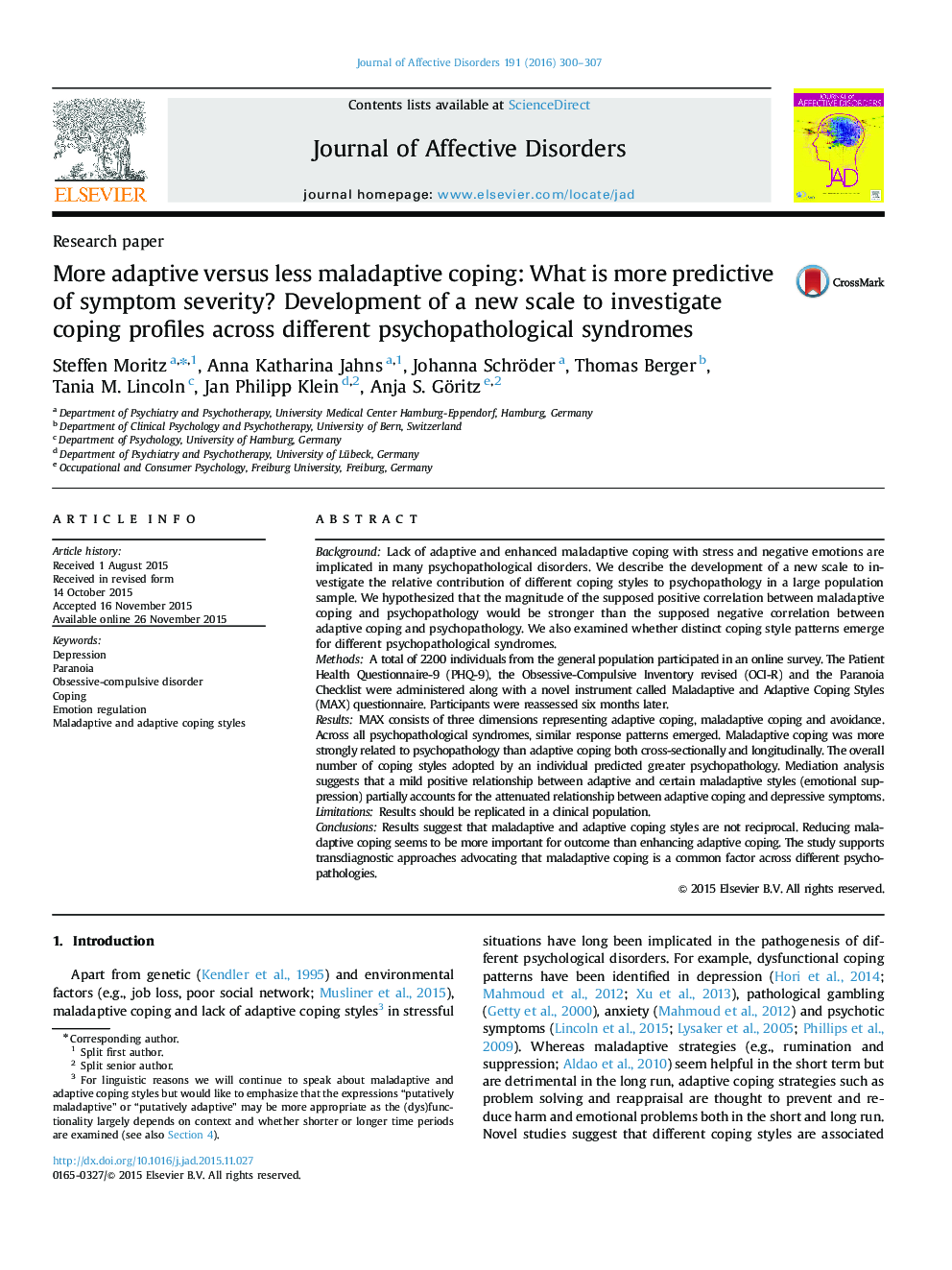| کد مقاله | کد نشریه | سال انتشار | مقاله انگلیسی | نسخه تمام متن |
|---|---|---|---|---|
| 6230580 | 1608134 | 2016 | 8 صفحه PDF | دانلود رایگان |
- A new coping scale is introduced measuring adaptive and maladaptive coping.
- Maladaptive coping was more strongly tied to depression than adaptive coping.
- Adaptive coping exerts some side-effects weakening its relationship with depression.
- Maladaptive coping seems to be more important for symptomatic outcome than adaptive coping.
BackgroundLack of adaptive and enhanced maladaptive coping with stress and negative emotions are implicated in many psychopathological disorders. We describe the development of a new scale to investigate the relative contribution of different coping styles to psychopathology in a large population sample. We hypothesized that the magnitude of the supposed positive correlation between maladaptive coping and psychopathology would be stronger than the supposed negative correlation between adaptive coping and psychopathology. We also examined whether distinct coping style patterns emerge for different psychopathological syndromes.MethodsA total of 2200 individuals from the general population participated in an online survey. The Patient Health Questionnaire-9 (PHQ-9), the Obsessive-Compulsive Inventory revised (OCI-R) and the Paranoia Checklist were administered along with a novel instrument called Maladaptive and Adaptive Coping Styles (MAX) questionnaire. Participants were reassessed six months later.ResultsMAX consists of three dimensions representing adaptive coping, maladaptive coping and avoidance. Across all psychopathological syndromes, similar response patterns emerged. Maladaptive coping was more strongly related to psychopathology than adaptive coping both cross-sectionally and longitudinally. The overall number of coping styles adopted by an individual predicted greater psychopathology. Mediation analysis suggests that a mild positive relationship between adaptive and certain maladaptive styles (emotional suppression) partially accounts for the attenuated relationship between adaptive coping and depressive symptoms.LimitationsResults should be replicated in a clinical population.ConclusionsResults suggest that maladaptive and adaptive coping styles are not reciprocal. Reducing maladaptive coping seems to be more important for outcome than enhancing adaptive coping. The study supports transdiagnostic approaches advocating that maladaptive coping is a common factor across different psychopathologies.
Journal: Journal of Affective Disorders - Volume 191, February 2016, Pages 300-307
